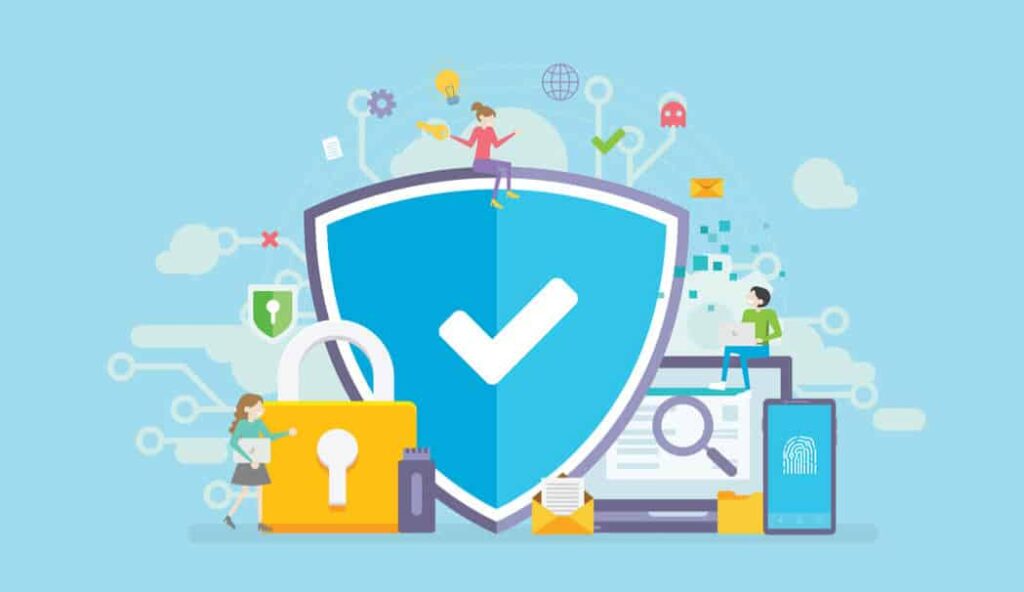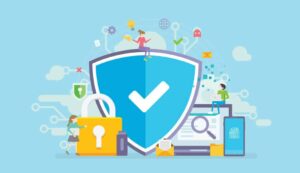Website security is of paramount importance in today’s digital landscape, where cyber threats and attacks continue to evolve. Protecting your website and its digital assets is crucial to maintaining the trust of your customers, safeguarding sensitive data, and preserving your online reputation. In this blog post, we will explore the significance of website security and discuss strategies to enhance the protection of your valuable digital assets.
1. The Importance of Website Security:
Website security is essential to protect against various cyber threats, such as hacking attempts, data breaches, malware infections, and unauthorized access. A compromised website can result in loss of customer trust, financial damage, legal liabilities, and damage to your brand reputation. By prioritizing website security, you mitigate these risks and create a safe and secure environment for your users.
2. Strong Passwords and User Authentication:
Implementing strong password policies and user authentication mechanisms is a fundamental step in enhancing website security. Encourage users to create complex passwords that include a combination of uppercase and lowercase letters, numbers, and special characters. Enable multi-factor authentication (MFA) to add an extra layer of security by requiring users to verify their identities through additional factors like SMS codes or biometric authentication.
3. Regular Software Updates and Patches:
Keeping your website’s software, including content management systems, plugins, and themes, up to date is crucial for maintaining security. Developers regularly release updates and patches that address vulnerabilities and security issues. By promptly applying these updates, you ensure that your website is equipped with the latest security enhancements and defenses against emerging threats.
4. Secure Socket Layer (SSL) Certificates:
Implementing SSL certificates is essential to encrypt the communication between your website and users’ browsers. SSL certificates create a secure connection, indicated by the padlock symbol in the browser’s address bar and the “https” prefix in the URL. This encryption protects sensitive information, such as login credentials, payment details, and personal data, from interception by malicious actors.
5. Web Application Firewalls (WAFs):
Web Application Firewalls are designed to filter and monitor incoming web traffic to your website, blocking malicious requests and potential threats. WAFs can detect and prevent common attack vectors, such as SQL injection, cross-site scripting (XSS), and distributed denial-of-service (DDoS) attacks. Implementing a WAF adds an additional layer of protection and helps safeguard your website against malicious activities.
6. Regular Backups and Disaster Recovery:
Creating regular backups of your website is essential to recover quickly in the event of a security breach or data loss. Backups should include not only your website’s files but also your databases. Store backups in secure locations, such as off-site servers or cloud storage, and ensure that the backup process is automated and tested periodically. In case of an incident, you can restore your website to a known good state and minimize downtime.
7. Security Audits and Penetration Testing:
Performing regular security audits and penetration testing can help identify vulnerabilities and weaknesses in your website’s security infrastructure. Security audits involve reviewing your website’s configurations, permissions, and access controls to ensure they align with best practices. Penetration testing involves simulating real-world attacks to identify vulnerabilities that could be exploited. By conducting these assessments, you can proactively address security issues and enhance your website’s defenses.
8. Educating Users and Staff:
Human error is often a weak point in website security. Educating your users and staff about best practices, such as avoiding suspicious links, practicing good password hygiene, and being vigilant against social engineering attacks, is crucial. Regularly provide security awareness training to ensure everyone understands their roles and responsibilities in maintaining a secure online environment.
Enhancing website security is vital to protect your digital assets, maintain customer trust, and safeguard your online reputation. By implementing strong passwords, user authentication measures, regular software updates, SSL certificates, web application firewalls, backups, security audits, and staff education, you create a robust security framework. Stay vigilant, continuously monitor your website for potential threats, and adapt your security measures as technology evolves. By prioritizing website security, you fortify your digital assets and demonstrate your commitment to safeguarding the privacy and trust of your users.







